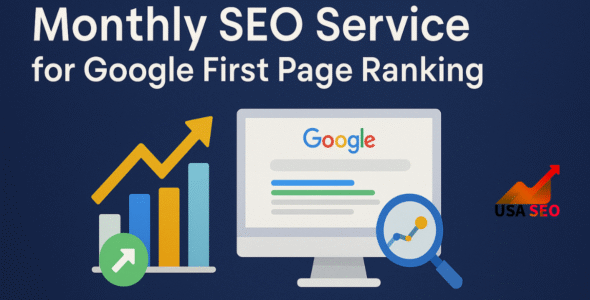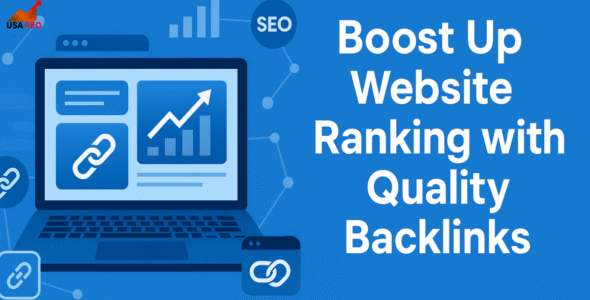Effective enterprise SEO reporting helps businesses track performance, identify opportunities, and optimize strategies. To create impactful reports, focus on key metrics like organic traffic, keyword rankings, and conversion rates. Use clear visuals, segment data by user demographics, and align results with business goals. Regularly review and adjust your SEO strategy based on insights from these reports to drive continuous improvement and growth.
Consider your goal
Collaborating with SEO experts helps define your goals and shapes your strategy. When setting SEO goals, some common objectives include:
- Website Traffic Development: This can include developing organic search traffic, referral traffic, or promotional traffic.
- Improving Search Engine Rankings: Targeting specific keywords boosts your website’s SERP ranking, increasing visibility and traffic. By focusing on relevant keywords, you can enhance visibility, drive more traffic, and attract the right audience to your site.
- Increasing Brand Visibility: Increase social media exposure to boost brand searches for your organization.
- Leads or Sales: This goal focuses on improving conversion rates, lead generation, and increasing online sales.
- Backlinking: Building high-quality backlinks from other websites can improve your website’s authority and help improve your search engine rankings.
When defining your goals, it is important to ensure that they are specific, measurable, achievable, relevant, and time-bound (SMART). This will help set you up for consideration and let you know what you need to track.

Understand your audience
When it comes to enterprise seo reporting, understanding your audience is key. Knowing your audience helps you determine the most appropriate metrics, data, and language to use in your reports.
Start by asking yourself who am I creating this report for? Again, understand whether they are clients, whether they are decision-makers in the organization, and who to communicate my results to.
Once you identify your audience, you can craft a report tailored to their needs and preferences. Make sure you understand your audience’s knowledge level and what level of detail they will need.
The frequency of your reports should align with your audience’s needs. Consider whether your report will be a monthly summary or a weekly in-depth analysis. Senior executives may prefer a monthly overview of key metrics, focusing on high-level trends and KPIs that inform strategic decisions. Knowing these details will help you create an effective enterprise SEO report.
Additionally, you should think about how you can best present the data to your audience. It is important to present information in a way that is easy to understand and digest. Consider using visuals like graphs, charts, and tables to break up the text and make the report easier to follow.
By taking the time to understand your audience, you can tailor your reports to meet their specific needs and expectations. This will ensure that your enterprise SEO reporting is effective and successful.
Choose the right metrics
Choosing the right metrics to measure the success of your SEO strategy is crucial. The exact metrics will depend on your specific goals and objectives, but some common metrics include:
- Organic Traffic: Organic traffic refers to the number of visitors that come to your website from search engines. This metric can help you track the effectiveness of your SEO efforts to drive more traffic to your website.
- Keyword Ranking: Tracking your website’s ranking for specific keywords and phrases can help you understand how your SEO efforts are affecting your search engine visibility.
- Backlinks: Backlinks are joined from different sites that highlight your site. Tracking backlinks helps improve website authority and search rankings.
- Transformation rate: The change rate alludes to the level of site guests who make an ideal move, like making a buy, finishing up a structure, or pursuing a pamphlet. Tracking your conversion rate can help you understand the effectiveness of your website content and user experience.
- Bounce Rate: Bounce rate refers to the percentage of website visitors who leave your website after viewing just one page. A high bob rate might show that your site content or client experience needs improvement.
When choosing metrics, it’s important to focus on those that are directly tied to your goals and objectives. Additionally, avoid vanity metrics that may look impressive but don’t provide valuable insights into your SEO strategy. By focusing on key metrics, you can measure SEO success and make data-driven improvements.

Simplify your data
Focusing on the right metrics helps you measure the effectiveness of your SEO strategy. Track important data like organic traffic, search engine rankings, click-through rates (CTR), and conversion rates. Avoid vanity metrics, like high page views or likes, that don’t provide real insight into performance. Monitoring your backlinks is also key, as they impact your site’s authority and rankings. This data helps optimize SEO efforts, adjust strategies, and target the right audience. Consistently refining your strategy helps maintain growth and better results over time.
Your reports are automated
Automating your reports is a time-saving and effective way to streamline your enterprise SEO reporting. Manually generating reports can be time-consuming and error-prone, especially when dealing with large amounts of data. By automating your reports, you can save time, reduce errors, and ensure your reports are consistently delivered on time. Here are a few ways to mechanize your reports:
- Use reporting tools: There is a variety of reporting tools available that can help you automate your SEO reports. These tools can help you create custom reports, automatically collect data, and schedule reports to be delivered regularly.
- Set up templates: Creating report templates can help you streamline the reporting process and ensure consistency across all reports. Templates can help you save time by automatically populating data into pre-designed reports.
- Tailor your reports: While templates are useful, it’s essential to adapt them to the unique needs of your stakeholders. Include key metrics and use visuals to present data clearly for your audience.
- Schedule reports: Regularly delivered schedule reports can help ensure that stakeholders get the information they need on time. Set up alerts and notifications to ensure stakeholders are promptly informed when reports are delivered.
By automating your reports, you can save time and improve the accuracy and consistency of your enterprise SEO reporting. It can help you communicate the impact of your SEO efforts to stakeholders and make data-driven decisions to continually improve your strategy.

Evaluation and Improvement
In the world of digital marketing, particularly when it comes to SEO and content strategies, regular evaluation and continuous improvement are essential for long-term success. Moreover, after implementing an SEO strategy, businesses must take the time to assess the effectiveness of their efforts. This evaluation process involves tracking key performance indicators (KPIs), such as organic traffic, keyword rankings, conversion rates, and backlink quality. By analyzing these metrics, businesses can gain insight into whether the strategies are achieving the desired outcomes or if adjustments are necessary.
Once the data is gathered, it’s crucial to refine and adapt the approach to stay ahead of evolving trends, algorithm changes, and user behavior. Regular analysis allows marketers to identify what’s working well and what isn’t, ensuring that resources are spent efficiently. For example, if a particular content strategy is driving traffic but not generating leads, businesses may need to tweak their calls to action or adjust the messaging to better align with user intent.
Furthermore, keeping up with the latest industry changes and competitors’ strategies can offer fresh perspectives for improvement. Evaluation should also extend to on-page SEO elements, content quality, website user experience, and mobile responsiveness. By adopting this holistic approach to ongoing improvement, businesses ensure that their strategy remains agile and effective in an ever-changing digital landscape. Ultimately, by focusing on evaluation and improvement, businesses can create a sustainable SEO strategy that drives results, builds brand visibility, and fosters long-term growth.
 My Account
My Account 


